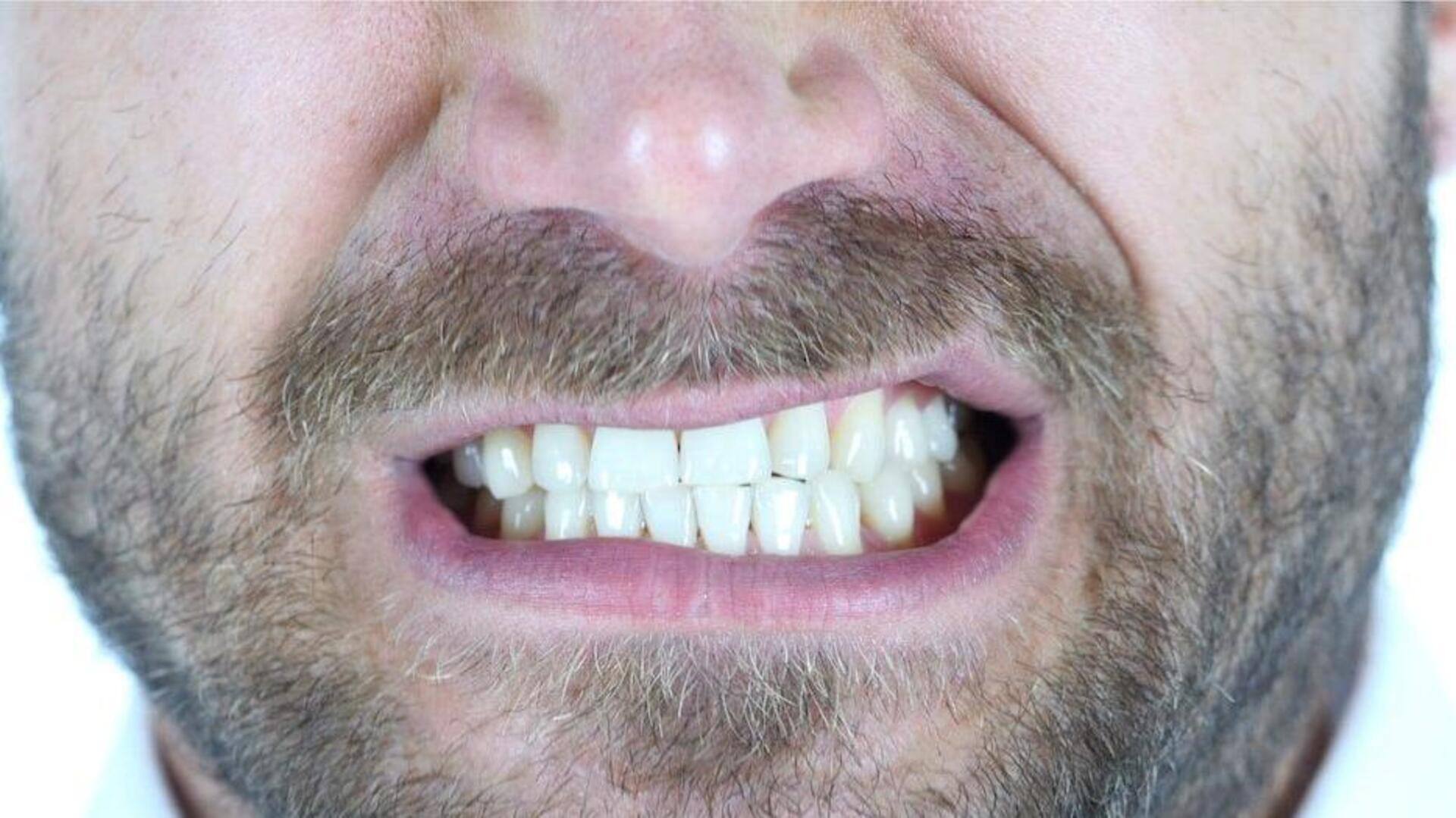
Nightly tooth grinding is often misunderstood. Let's bust some myths
What's the story
Millions of people grind their teeth at night, most of them don't even realize they're damaging their teeth until it's too late. This article aims to dispel misconceptions about nightly tooth grinding, or bruxism as it is medically termed. It emphasizes the need for awareness and intervention to prevent long-term dental and health issues. Busting these myths is crucial for preserving not just oral health, but overall wellbeing.
Myth 1
It's just a bad habit
Many people think that grinding your teeth is just a bad habit that doesn't really harm you. The truth is, chronic tooth grinding can cause serious dental damage. This includes worn-down teeth, increased sensitivity, and even tooth loss in severe cases. It's not just a habit; it's a medical condition that needs to be addressed and managed to prevent long-term damage.
Myth 2
No pain, no problem
Another misconception is that if tooth grinding doesn't hurt, it's not a problem. This is false. While many people may not feel immediate discomfort, constant grinding subjects the jaw muscles and tissues to immense strain. This causes temporomandibular joint (TMJ) disorders, headaches, and even changes in facial appearance over time.
Myth 3
Only affects dental health
Most people think grinding their teeth only damages their smile, but the reality is a bit more complex. It can actually make sleep apnea worse and seriously mess with your sleep quality. The constant strain on your jaw muscles can lead to chronic pain, making it hard to focus on anything else. Knowing these effects is important so you can get the right treatment and feel your best.